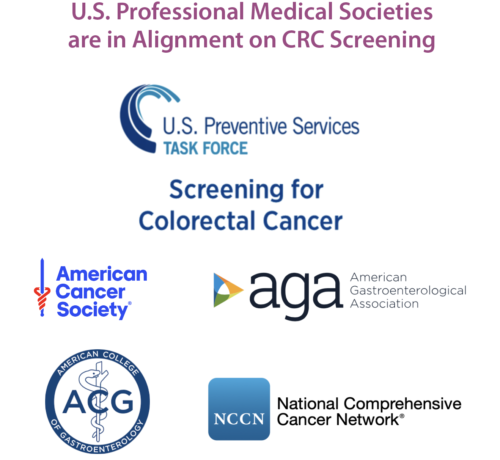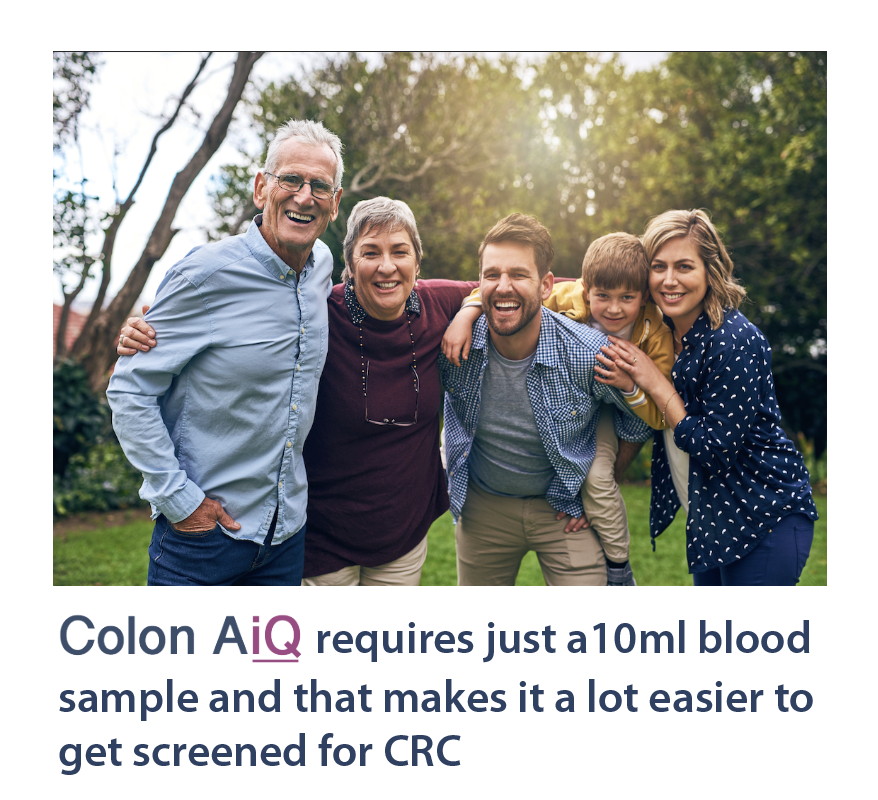Under 45
For people
with elevated risk
Ages 45 – 75
For people
at average risk
Over 75
based individual risks
and patient-specific factors
The Recommendations are Clear
Starting at age 45, all adults at average risk should get a CRC screening test
This new and recommendation to lower the age of screening by 5 year was in 2021 by the U.S. U.S. Preventive Services Task Force and has been implemented in policy directives by major medical and civil society groups. Because the directive is relatively new and people of all ages are hesitant to get colonoscopies and follow through with stool tests, there are many millions of eligible adults in the 45-50 age bracket that have never had a colon cancer screening test. Unfortunately, there are millions more in the 50 to 75 age range that have also never had a screening test for CRC.
A person is considered average risk if they have no symptoms, no family history of CRC, no known genetic risk factors, and no history of inflammatory bowel disease (IBD).
Adults under 45 should consider getting a screening test if they may be at higher risk.
Higher risk categories include people with:
A family history of colorectal and other cancers, known high-risk genetic mutations, IBD (previous or current) and lifestyle factors including obesity, poor diet, alcohol consumption, tobacco use, or lack of physical activity.
People at high risk should start to get screened beginning at age 40 or 10 years before the youngest case of colorectal cancer in their immediate family, whichever is earlier. People with known genetic risks for CRC should follow screening recommendations based on their specific DNA profile.


Adults over 75 should also consider getting screened for CRC
Screening for CRC in this age bracket is recommended on an individual basis. Professional recommendations state that patients and clinicians should consider the patient’s overall health, prior screening history, and preferences.
The risk of developing CRC increases with age. The average age for a diagnosis of colorectal cancer is age 66.

can help detect CRC early, when it is the most likely to be able to be treated and cured.
All adults should be educated about their risk for CRC
and begin a screening program as needed
